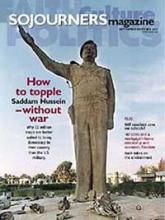Recently a newspaper in Washington, D.C., carried a four-part series titled "Black Money." It said that life for African Americans has never been better, suggesting that the quest for racial equality in America was complete. In fact, that is what most Americans believe. In a major national poll last year, a majority said when it comes to jobs, income, health care, and education, black Americans are doing just as well as whites.
What would life be like if the majority of Americans were right? What if the racial gaps were closed? What would we gain?
If America had racial equality in education and jobs, African Americans would have 2 million more high school degrees, 2 million more college degrees, nearly 2 million more professional and managerial jobs, and nearly $200 billion more income. If America had racial equality in housing, 3 million more African Americans would own their homes. And if America had racial equality in wealth, African Americans would have $760 billion more in home equity value, $200 billion more in the stock market, $120 billion more in their retirement funds, and $80 billion more in the bank. That alone would total over $1 trillion more in wealth.
These gaps demonstrate that the long journey of black Americans from an enslaved people to full participants in our society—a journey that began 137 years ago—is far from complete. We have come a long way. We have won the equal right to education, to employment, to housing, and to success. And yet the racial gaps persist. Why is that? How can we close the gaps?
The Mystery of Capital
Read the Full Article

